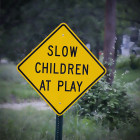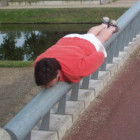
In Tennessee, If You Can’t Say Gay, Try George Takei
|
Legislation banning the discussion of homosexuality in Tennessee classrooms has just passed that state’s Senate. Referred to by opponents as the “Don’t Say Gay” bill, Senate Bill 49 would affect prepared materials and instruction in kindergarten through eighth grade. Popular “Star Trek” alum and noted gay activist George Takei wants LGBT youth to know he has a workaround if the bill becomes law. In a video posted on Youtube, Takei suggests replacing the word “gay” with his own name: “Takei.”
“The so-called ‘don't say gay’ law is premised on the misguided belief that, by not talking about gay people, they can simply make us disappear,” Takei said. The video offers several suggestions for where use of the term “Takei” would be appropriate, including, “I am a supporter of ‘Takei marriage’.”








